Here we are, then: my top 5 reading memories from the last decade. I knew how this countdown would end before I started compiling the list. The reading experiences I’m talking about here… more than anything, this is why I read.
The previous instalments of this series are available here: 50-41, 40-31, 30-21, 20-11, 10-6.
5. Convenience Store Woman by Sayaka Murata, tr. Ginny Tapley Takemori (2018)
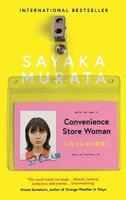
By the end of the decade, I had established that ‘short and strange/strong’ novels (often in translation) were something I liked, so I’d keep an eye out for anything that might fit the bill. That was how I ended up reading Convenience Store Woman.
There was an offbeat humour that drew me into the book, and in a few pages I could tell it was one for me. Sayaka Murata’s novel challenges the reader to understand where its protagonist is coming from, and I didn’t realise how successfully it had done this until the very end.
Murata’s protagonist, Keiko, has worked in the same convenience store for 18 years, and keeps being told by others to be normal – but she has a version of normal that works for her. When Keiko finds her element, it’s akin to a spiritual experience for her. That’s also what it felt like to read, which is something I’ll never forget.
4. Diving Belles by Lucy Wood (2012)
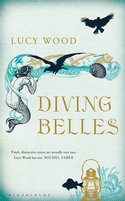
I have always enjoyed tales of magic and the supernatural, and Lucy Wood is probably my author of the decade for this strand of my reading. Across two story collections and a novel, Wood has carved out her own distinctive imaginative space: her settings are recognisably Cornwall and Devon, yet still unbound by specifics. Her stories are intensely focused on the relationship between places and the people who live there, and they have an otherworldly presence.
I could have chosen any of Wood’s books for this list, but I think her debut collection is the one that looms largest in my mind. The stories in Diving Belles bring elements of Cornish folklore into the present day. What made them stand out for me when I first read them was a sense that true magic lives and breathes within them. Intertwined with the metaphors in Wood’s stories, this makes for potent reading.
3. Signs Preceding the End of the World by Yuri Herrera, tr. Lisa Dillman (2015)
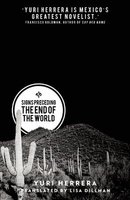
Even among my favourite books, I would say there aren’t many that operate at full pitch all the time. This is to be expected: there’s a natural ebb and flow. But Signs Preceding plunges you straight in on page 1, and does not let up for one moment.
When I say it doesn’t let up, I’m not talking about action so much as imaginative intensity. This is a novel of permeable borders: its protagonist, Makina, crosses the border from Mexico to the US on a mission from some gangsters. Her journey is like stepping into a grim nightmare.
Signs Preceding is full of different types of border being crossed: not just geographical ones, but social, mental or linguistic borders. That applies to the prose as well, the sentences that seem to spill over their own edges.
2. The Vegetarian and Human Acts by Han Kang (2015 and 2016)
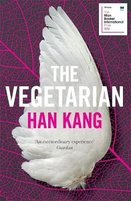
So far I’ve kept it to one book per author on this list, but it would be wrong to separate these two. They’re part of the same reading memory for me, really.
I first heard about The Vegetarian in late 2014. I was intrigued by the cover and the title as well as the premise. It was the first book I read in 2015, and nothing topped it all year. The Vegetarian tells of a woman who decides to withdraw from the world by stopping eating. The ramifications of her choice spiral out into the lives of others. The woman’s very self becomes a contested space. Reading this affected me deeply.

The next year, I read Human Acts, which examines the Gwangju Uprising and the question of how to write about – or even comprehend – such a horrific event. What Han Kang does is to focus on the small, individual actions that build up into something larger, and those small actions flash vividly from the page.
For me, there is something about Han’s writing that just bypasses conscious thought and goes straight to the heart. I haven’t read another writer who I feel gets so close to the experience of inhabiting a human body.
1. The Luminaries by Eleanor Catton (2013)
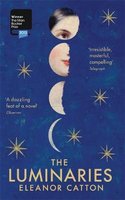
If I’d done a list like this for books of the 2000s, there is a good chance that Eleanor Catton’s The Rehearsal would be at the top. I had never read a book where language, metaphor and structure merged together so completely. Reading it was like looking at an optical illusion, perceiving the novel on multiple levels at once.
I wondered how she would follow this up, and was a little wary when I heard. A Victorian gold rush murder mystery patterned on astrology, with each section half as long as the last? It sounded like something of a gimmick, and I couldn’t believe that the author of The Rehearsal would make do with that. In February 2013, I was offered a sampler of the first 50 pages of The Luminaries. It was entertaining, but seemed nothing out of the ordinary – not like The Rehearsal, whose prose was obviously unusual from the first page.
Still, I bought a copy of The Luminaries as soon as I could in August. As I got further in, I began to see its complex tapestry of metaphors, and I realised it was doing the same as The Rehearsal, only more so. This is a novel that embodies the tension between fate and free will, and explores human patterns imposed on reality – patterns including narrative itself. As the chapters get shorter, the book becomes a black hole, ripping its narrative apart and spiralling down to a singularity, poised between closed past and open future. It’s one of the most exhilarating reading experiences I’ve ever had.
This novel continued to haunt me. For a whole year, The Luminaries percolated in the back of my mind, and new insights into it would keep occurring to me. No other book has lived with me to that extent, before or since. It is my single favourite book of the 2010s.
21st June 2020 at 11:36 am
Amazing choices. I do so agree on The Luminaries – a gorgeous tapestry of metaphors and great storytelling – even though I do believe that Catton did not really finish her book. Diving Belles is something completely new to me, so I am eager to check it out!
12th July 2020 at 1:58 pm
Hi Diana, and thanks for your comment. I have to disagree on the ending of The Luminaries – I think it ends in a perfect place.
I would recommend anything that Lucy Wood has written – if you read her, let me know what you think.
26th June 2020 at 7:41 pm
What great choices! The books by Han Kang and Yuri Herrera are terrific. Now I need to catch up on the other ones. Thanks!
12th July 2020 at 2:01 pm
Thanks for your comment, Terry. I hope you find something new amongst these to enjoy!